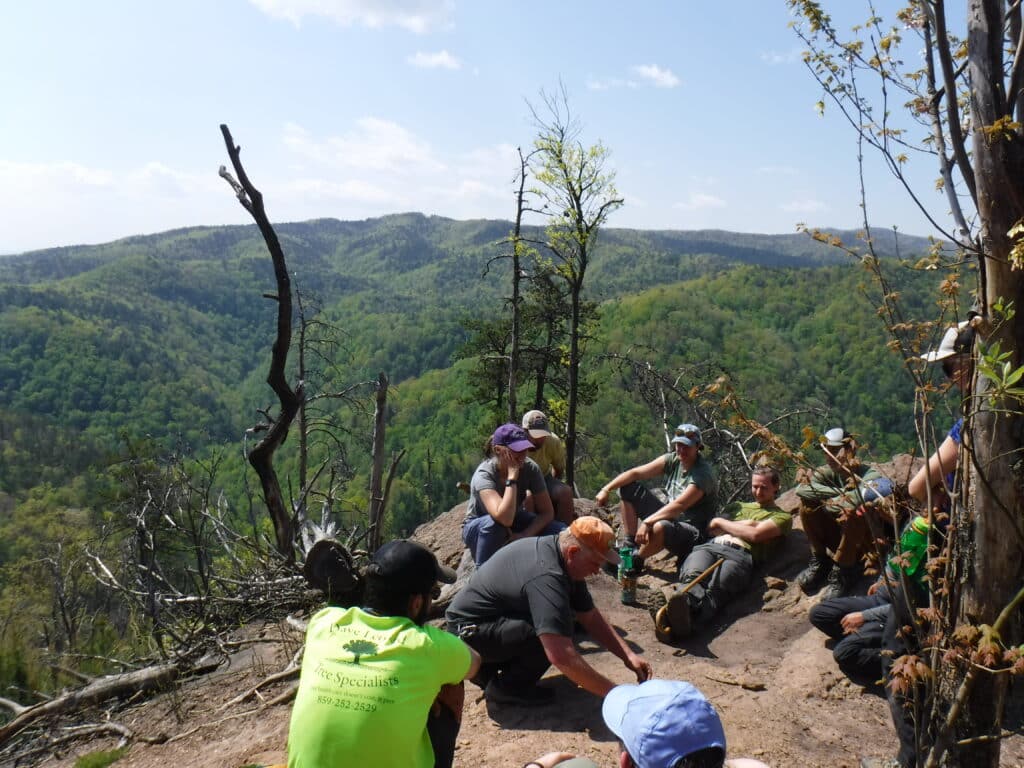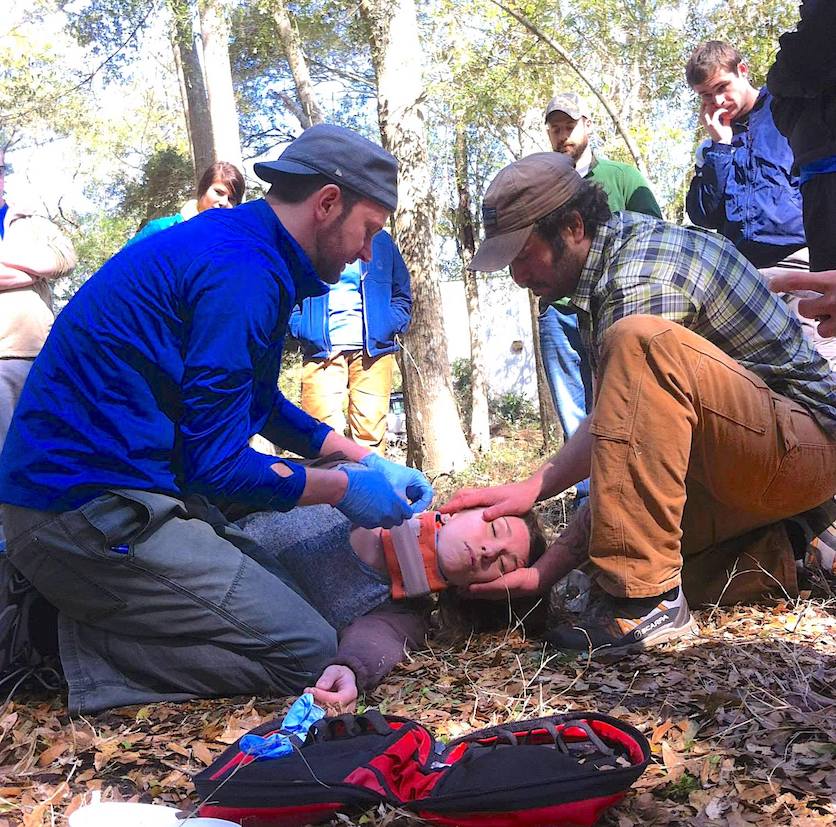Outdoor Industry Jobs Require Personal Experience and Certifications
Outdoor Educator TrainingProfessional development — learning that allows you to earn or maintain professional credentials — is key to career planning, especially when it comes to considering a career in the outdoor adventure and education industry. Much more than participating in a bunch of classes, our sector of the outdoor industry looks favorably on applicants with wilderness medicine training and certification, skills training and certification, and hands-on guiding and expedition leadership experience.
Truth is, we here at NCOAE found that operating an adventure education company during a health pandemic was challenging. And staffing our AEE-accredited organization with highly experienced instructors became increasingly difficult but not impossible.

Like other industries, we suffered a staffing shortage, and yes, some of our existing staff left to pursue other pathways. But what we’ve noticed lately is a lack of experience from some people who thought working in the outdoors would — quite literally — be a walk in the park.
Many of these would-be outdoor educators and guides decided that sitting on a couch while looking at photos and films of wilderness expeditions was a suitable alternative for actually going out and experiencing the outdoors.
This potential pool of applicants backed out and went the way of the “Instagram Adventurer” or the “Armchair Explorer.” And in talking with our colleagues across our sector of the outdoor industry, we’re not alone in seeing this trend. Nearly all outdoor adventure and education organizations are taking pause and evaluating the future of trainings, staff recruitment, and what it means to be qualified to head out into “wild places.”
Regardless of what other organizations choose to do about their staffing challenges, NCOAE will not budge on what is required of our field instructor and outdoor educator candidates. Hands-on experience coupled with recognized industry certifications still matter and always will.
If you’re interested in a seasonal or full-time job in outdoor education, here are my recommendations on how to proceed. (more…)
Op-Ed: Has the Time Come to Standardize Wilderness Medicine Education and Training?
Wilderness Medicine TrainingThere is no shortage of wilderness medicine education providers in this country. From organizations that offer education and training for Wilderness First Responder (WFR) and Wilderness First Aid (WFA) certifications to those that offer train-the-trainer programs, a simple online search reveals a ton of options — especially when the search is focused on a specific geographical region.
What’s striking about all the wilderness medicine training and certification taking place is that none of it is nationally regulated. None of it adheres to commonly accepted industry standards that govern what’s being taught or how wilderness medicine education and training are being delivered. On the other hand, the training and certification EMTs receive is regulated on a state-by-state level and must meet minimum requirements as set by the National Highway Traffic Safety Administration (NHTSA).
Wilderness medicine training, while loosely adhering to a similar curriculum, is officially overseen by, well, no one. That being said, standardization and oversight aren’t completely absent. Several organizations have attempted to fill the void with a variety of education programs, courses, guidelines, accreditations, and oversight committees.
A Mismash in the Making
Historically speaking, first on the list is the Wilderness Medical Society (WMS) — a nonprofit founded in the early 1980s to encourage, foster, support, and conduct activities that improve the scientific knowledge of human health activities in a wilderness environment. WMS offers three types of advanced wilderness medicine-related certification that have a “continuing education” focus and accreditation connection. The organization’s Fellowship in the Academy of Wilderness Medicine (FAWM), Diploma in Mountain Medicine (DiMM), and Diploma in Diving and Marine Medicine (DiDMM) are all provided in accordance with standards set in part by the Accreditation Council for Continuing Medical Education (ACCME).
There’s also the fledgling Wilderness Medicine Education Collaborative (WMEC) — an ad hoc group of medical educators whose interest in providing guidance on content for wilderness medicine courses has resulted in the creation of minimum guidelines and scope of practice (SOP) documentation for Wilderness First Aid (WFA), Wilderness Advanced First Aid / Advanced Wilderness First Aid(WAFA/AWFA), and Wilderness First Responder (WFR) training. While the work of the collaborative (whose members include leaders from SOLO Wilderness Medicine, Wilderness Medical Associates International, and NOLS Wilderness Medicine, among others) has resulted in a robust set of SOPs, its influence is nonexistent outside those of us who actively choose to look beyond ourselves for best practices. In other words, without accreditation, there’s no real motivation for anyone offering wilderness medicine education to seek out the WMEC. And without a formal structure and an administrative arm, the WMEC has no enforceable authority or meaningful influence.
Speaking of accreditation, closer to home for those us in outdoor and experiential education, following a rapid increase in the number of adventure programs in the late 1980s and early 1990s, it became imperative that outdoor experiential education programs develop standards of program quality, professional behavior, and appropriate risk management. Enter the Association for Experiential Education (AEE), which responded to that need in the early 1990s by developing comprehensive standards for common practices in the adventure education industry, becoming the nation’s first recognized accreditation provider focused on outdoor and adventure-based experiential education programming.
(more…)TALK TO US
Have any further questions about our courses, what you’ll learn, or what else to expect? Contact us, we’re here to help!
